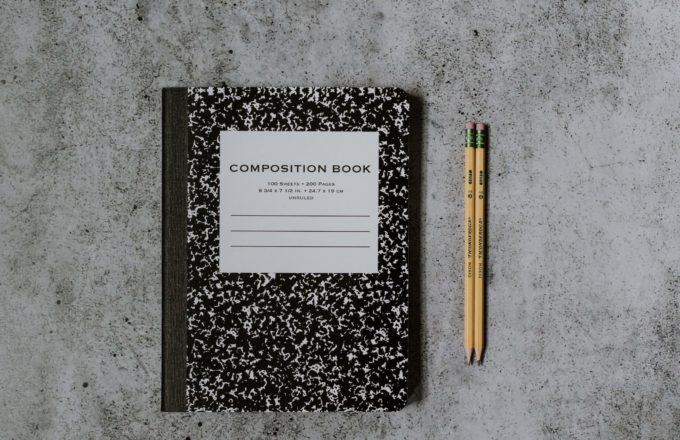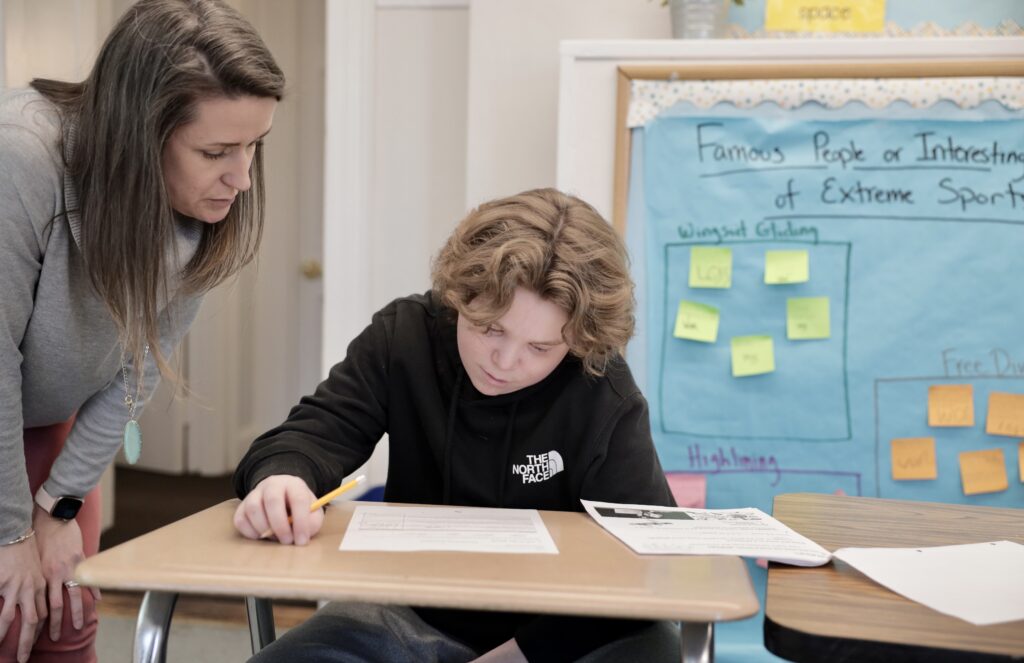Defining Study Skills
Academic proficiency requires the successful engagement of the executive functions. Executive function allows students to coordinate the necessary cognitive resources to execute or persist in the completion of a goal. Many students with LBLD can experience difficulties with executive function and benefit from direct instruction in study skills to support goal directed persistence.
Landmark School defines study skills as the management of materials, time, and information. Also, an integral component is students’ ability to reflect on their personal learning awareness, which involves understanding how they learn best. Students who demonstrate effective study skills know how to use their time wisely, implement strategies to organize their materials, and effectively process the information they learn. Students with effective personal learning awareness can shift attention when needed, think critically about problems that might arise, and reflect on their performance to make adjustments.
Some students may develop study skills with little guidance, but most students require explicit instruction and continuous practice to engage their executive functions in order to effectively process, coordinate, and use the vast array of information they encounter each day. When students master how to implement effective study skills, their metacognitive skills improve, helping them reflect on how to stay organized with school materials, prepare for tests and quizzes, and understand the strategies that work best for achieving their goals.
Managing Materials
Students with the ability to effectively manage their materials can easily locate and organize information in both paper handouts and digital documents. They independently bring all necessary materials back and forth to school. However, many students benefit from support as they learn how to master these skills and manage their physical and digital materials. When students struggle to keep track of necessary materials, it is the lack of materials management, not the academic ability, that interferes with performance. Therefore, it is essential for educators to support students’ development of materials management strategies.
The following are examples of strategies that educators can explicitly model and practice to help students develop materials management skills:
- Give students time to record homework in an assignment notebook during class
- Model an organized binder and provide time for students to organize and locate their papers
- Encourage students to remove unnecessary materials from binders
- Provide materials checklists to ensure students bring the correct materials to class each day
- Prompt students to gather resources before midterms or finals
- Provide images or models of an organized workspace (desk, locker, backpack, binder)
- Help students organize digital files and emails
Managing Time
Managing time is also a crucial part of study skills. When students have effective time management skills, they can arrive at school and classes on time. They have an awareness of how long assignments will take them to complete and know the appropriate amount of time to dedicate to this work. Also, students with solid time management skills have an awareness of time and how it passes. However, many students struggle with time awareness and management. Teachers should work to weave time management skills into their daily classroom routines by emphasizing the importance of and explicitly modeling the following skills:
- Break down homework time
- Estimate how long assignments will take, then compare these estimates to the actual time used
- Prioritize assignments
- Break down long-term assignments into smaller steps to avoid procrastination
- Use a calendar to keep track of due dates
- Make time visible with the use of calendars, clocks, and timers
Managing Information
In addition, the ability to manage the vast amount of information encountered throughout a typical school day is a cornerstone of effective study skills. When students can process and then organize information and language, they are typically able to effectively take and organize notes on a topic. They can engage their internal thinking about a topic and use it to guide their margin notes and highlighting. To achieve this level of proficiency, many students benefit from explicit instruction. Teachers can support students’ development of information management skills by teaching them how to:
- Take active reading notes using strategies such as highlighting, margin notes, and two-column notes
- Summarize information
- Research a topic
- Apply a process approach to writing assignments
- Take lecture notes during an oral presentation
- Incorporate active study strategies, such as the creation of flashcards, to prepare for tests and quizzes
Personal Learning Awareness
Finally, effective study skills instruction extends beyond practicing strategies like highlighting and summarizing; students also use metacognition to reflect on their own learning or their own personal learning awareness. Students who struggle with personal learning awareness might experience difficulty reflecting on themselves as learners, seeing the importance of processing the steps inherent in completing work (like outlining before writing paper or showing their work in math class), understanding which strategies may or may not work for them, and appropriately shifting when something isn’t working. Although these skills certainly extend beyond the school years and academic tasks, the ability to be aware of their own learning is critical to academic success. These skills can be fostered and supported in the school setting by teaching students to:
- Verbalize thought processes that aid in comprehension, making thinking visible for students as they engage in reading and writing tasks
- Provide opportunities for student reflection on performance, asking them to assess what went well and what are areas for improvement. Consider asking students to reflect on their:
- Use of time management
- Test performance or preparation
- Individual performance in a group project
Explicit instruction (including modeling) and guided practice of study skills supports the development of the executive functions and can help to improve academic performance. Many students will continue to require further guidance to generalize the strategy to novel situations; however, as students demonstrate mastery of strategies, teachers can gradually withdraw guidance.



